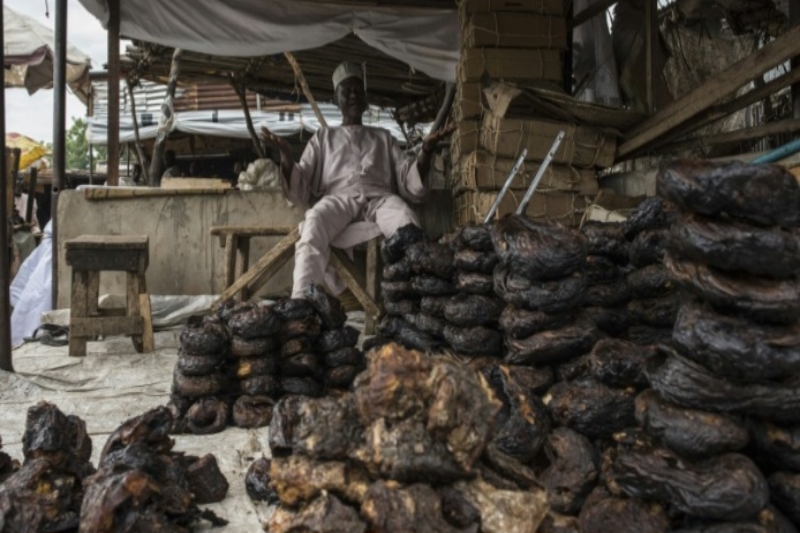The coup in Niger is having a devasting effect on fish traders and other merchants in Borno State who say that the closed borders are costing them their livelihoods and their businesses are on the verge of collapse.
One trader described the once-thriving Baga Road fish market in Maiduguri as a “ghost of its former self”.
The coup began on July 26 when the head of Niger’s presidential guard, General Abdourahmane Tchiani, locked the democratically elected president, Mohamed Bazoum, whom he had a mandate to protect, in the presidential palace and told the world that he was now in charge.
The new junta immediately closed land borders and air space.
The Economic Community of West African States (ECOWAS) reacted by imposing sanctions on Niger. It even warned that a military intervention could be imminent if constitutional order was not restored and Bazoum returned to the presidency.
But a month later, the military junta is still in place.
Traders in Borno State, which is one of seven Nigerian states that border Niger, said they were all feeling the squeeze from the shutdown.
Already facing the challenges of a massive hike in the price of fuel and the high cost of living, merchants at the Baga fish market told RNI that the border closure was killing their trade.
They said that at the peak of the insurgency, the fishing business was one of the hardest hit because it was too dangerous for fishermen to go to rivers or Lake Chad and merchants could not travel. As a result, the popular Baga fish market was grounded and many lost their only means of making a living.
However, with the return of relative peace and security in the state, the market was reopened and was beginning to get back to normal doing brisk business.
But, the traders said, the massive fuel spike had affected the cost transportation and that had resulted in an increase in the cost of fish.
However, despite these challenges, they said, until the coup, traders managed provide all varieties of fish at the market. They bought the fish mainly from merchants in Baga town in the Kukawa Local Government Area, Gamboru in the Ngala Local Government Area and from traders in neighbouring Niger.
But the closed borders now meant they could no longer do business with suppliers and buyers in Niger.
Before the coup, the borders between Borno State and Niger had already been closed because of the 14-year conflict. They had remained closed even when the security situation became more stable. But the closed borders had not fazed fish traders and other merchants and they continued to buy and sell fish and other goods by crossing the borders on foot.
Kyari Hassan, a fish dealer at the Baga fish market, said: “Before the coup we used to trade in all varieties of fish with the border communities in Niger and Nigeria. But now security operatives, including the military, police, customs, civil defence and immigrations have tightened their surveillance in the affected communities and put an end to all trade.”
Fewer varieties of fish were now available and the price of fish had skyrocketed.
Hassen said that before the coup a large bag of fish was sold for sold for about ₦40,000 or ₦45,000 but now the price was anything from ₦70,000 to ₦120,000.
Abba Gana said: “The market is gradually becoming a ghost of its former self. The price of fish has increased and we are also no longer getting a regular supply of fish from communities in the Lake Chad region. The result is that fewer people are coming to the market.”
He said a medium bag of fish used to cost around ₦19,000 or ₦20,000. Now a medium bag of fish was being sold for ₦70,000 and ₦80,000.
“We sometimes fillet the fish into slices instead of selling a whole fish. But many buyers can’t even afford to buy the fish fillets. We have had to put up the prices because the bags of fish have become so expensive. If we don’t sell our fish at a higher price, we don’t make a profit. But we have lost many buyers so we are not making much profit anyway.
“Honestly, the price of fish has skyrocketed. Before the border closure we used to sell a small bag of fish for ₦7,500 or ₦8,000. Now we are selling it for ₦14,500 or ₦15,000. People just can’t afford it. Our businesses are being crippled.”
Alhaji Zanna said that traders relied heavily on buying and selling fish in Niger.
“Our livelihoods are beginning to shatter and many businesses are collapsing. If the political situation in Niger is not resolved soon, we might all have to shut up shop.”
SHETTIMA LAWAN MONGUNO






